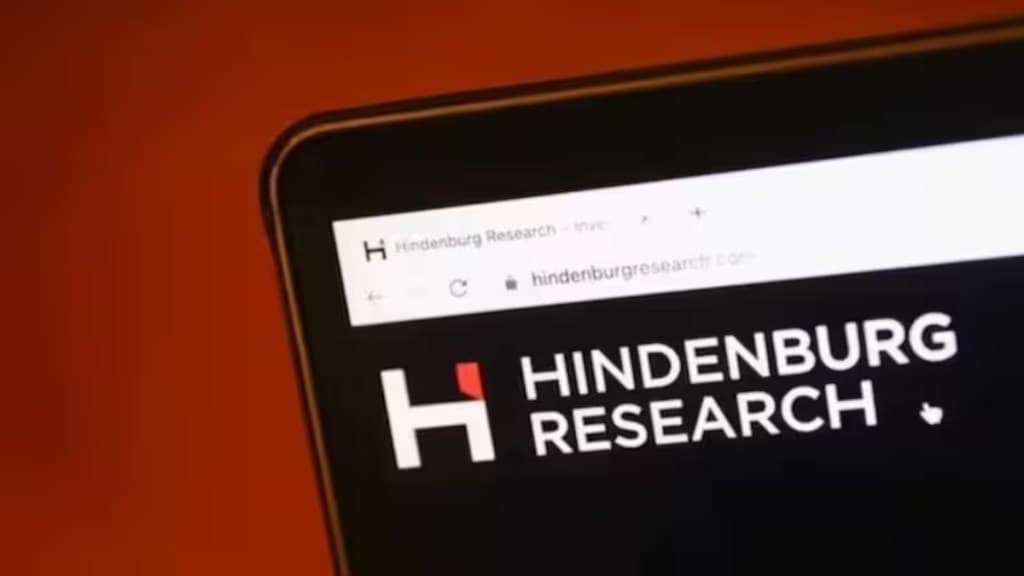Hindenburg Research was named after the high-profile disaster of the Hindenburg airship in 1937 which ignited as it flew into New Jersey. In the seven years of its existence, the US-based short-seller has lived up to its name by igniting many controversies involving some of the storied names in corporate America. In India, it has taken on one of the biggest names in corporate India and even the capital markets regulator.
Founded in 2017, Hindenburg Research claims it is a forensic financial research firm which analyses equity, credit and derivatives. On its website, Hindenburg says it looks for “man-made disasters”, such as accounting irregularities, mismanagement and undisclosed related-party transactions. After finding what it calls “wrongdoings”, Hindenburg usually publishes a report explaining the case and bets against the target company, hoping to make a profit.
Founder Nathan Anderson, who worked in a host of investment management companies, told the Wall Street Journal (WSJ) in 2020 that he set up the firm after he realised that other analysts “were doing a lot of run-of-the-mill analysis, there was a lot of conformity”. He also did a brief earlier stint as an ambulance driver in Israel. The short-seller says on his LinkedIn page that it gave him “experience thinking and acting under extreme pressure”.
Anderson has said in interviews that Harry Markopolos, an analyst who first flagged Bernie Madoff’s fraud scheme, is his role model.
Apart from the continuing Adani saga, the short-seller has already come out with an astonishing eight reports (January-June, 2024) against companies such as Axos, Temenos (two reports), Equinix, fashion powerhouse LPP SA, Renovaro Bioscience and Lifestance (two reports). The charges ranged from glaring loan problems, lax underwriting, accounting manipulation, disclosure violations, selling pipe dreams to investors, using front entities and illusive turnaround.
The most exotic charge was against Renovaro, who has been accused of playing a “worthless AI game with a murderous magician past”.
According to a Bloomberg report last year, Hindenburg had in the past a run of often-successful bets against companies ranging from electric-vehicle maker Nikola Corp to Twitter. Hindenburg has targeted about 30 companies since 2020, and their stocks on average lost about 15% the next day, according to calculations by Bloomberg News. The shares on average were down 26% six months later.
This is in sharp contrast to the Adani group’s fate as it has recovered from the bloodbath its stocks received in the immediate aftermath of the so-called expose.
Before the Adanis, Anderson’s most high-profile short attack targeted Nikola, which he accused of “an ocean of lies”. After the report came out in September 2020, Nikola founder Trevor Milton resigned from the position of chairman and CEO as he failed to deliver any credible rebuttal against the accusations. In the following months, he was jailed.
Similarly, in March 2021, the shares of another EV maker, Ohio-based Lordstown Motor, fell about 18-20% immediately following Hindenburg taking a short position on the truck maker’s stock.
Hindenburg also made bets on both a decline and increase in Twitter’s stock as it went through dizzying swings before Elon Musk closed his acquisition of the company.
DraftKings and Clover Health Investments were some of Anderson’s high-profile bets against firms that went public via special-purpose acquisition companies. The short seller said in June 2021 that insiders at DraftKings made profits on the deal announcement with a blank-check firm, among other allegations. The sports-betting company, which denied wrongdoing, received a subpoena from the US Securities and Exchange Commission in July 2021 seeking documents concerning those allegations.
Clover Health, backed by venture capitalist and SPAC mogul Chamath Palihapitiya, fell more than 90% after Hindenburg published a report in February 2021 alleging the company had misled investors. The SEC began an investigation after the report, which the company said was full of inaccuracies.
Not only in the US, but companies based out of other countries—China, for instance—have borne the brunt of Hindenburg’s investigations into their fraudulent activities: While China Metal Resources Utilisation’s accounting irregularities and financial problems were revealed in May 2020, WINS Finance’s frozen assets in China, undisclosed to US investors, was brought to light.


